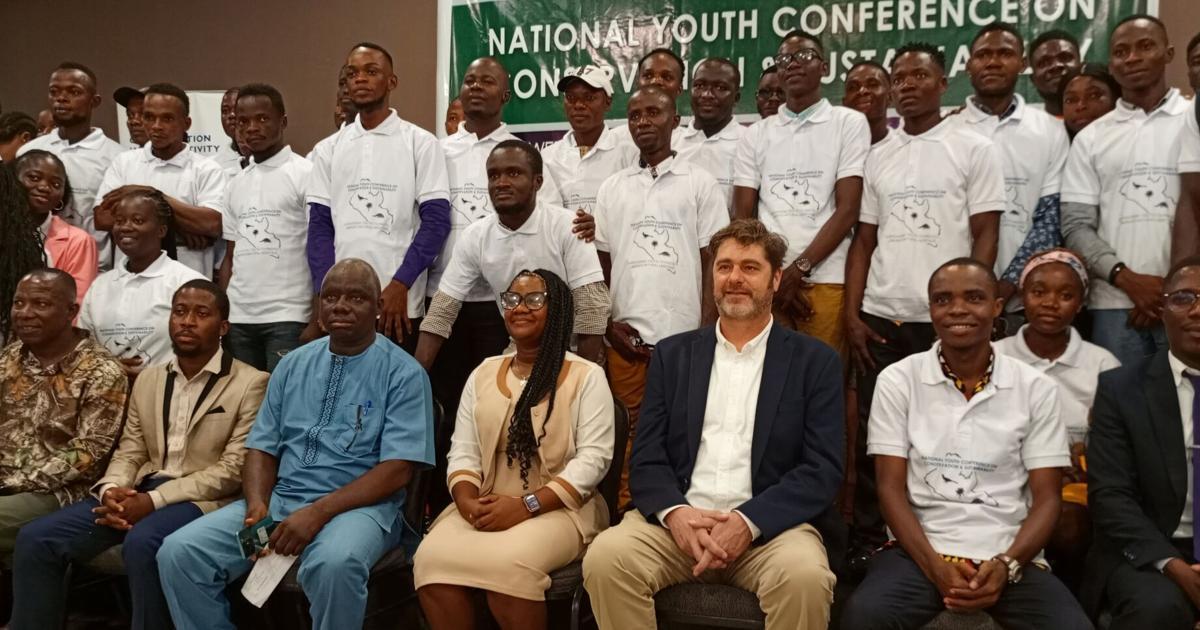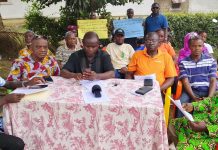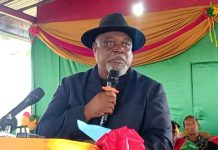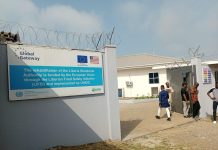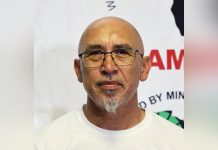Africa-Press – Liberia. The Federation of Liberian Youth (FLY) and the United States Agency for International Development (USAID) joined hands to host a National Youth Conference on Conservation and Sustainability, with the theme, “Empowering Youth to Protect Liberia’s Future.” The conference, which took place at the Bella Casa Hotel in Monrovia, featured key figures in government, conservation, and youth advocacy.
Key attendees at the conference were Hon. Frank Saah Foko, Representative of District 9, Montserrado County, and Chairperson of the Youth Legislative Caucus; Ezekiel Nyanfor, Executive Director of the Liberia Youth Climate Action; Dr. James Desmond, Chief of Party, Liberia Chimpanzee Rescue and Protection; Jerry Yonmah, Technical Manager, FDA Conservation Department; Samuel James Kpartor, National Program Manager, Federation of Liberia Youth (FLY); and Ms. Banica Stephanie Elliott, President, FLY.
Nyanfor delivered an impactful keynote address that underscored the critical role of Liberia’s youth in addressing environmental challenges such as biodiversity loss, pollution, and global warming.
He highlighted the pressing need for sustainable conservation practices to safeguard Liberia’s natural heritage and ecosystem services. Nyanfor stressed the importance of youth engagement in driving conservation efforts, advocating for stronger policies, and enforcing existing regulations for environmental protection and sustainable development.
He said Liberia’s lush forests, vibrant wetlands, and diverse ecosystems are not just resources; they are the very essence of Liberia’s identity.
Nyanfor also stated that more than half of Liberia’s population and the perspectives of its future leaders are invaluable in the discussions surrounding the most defining challenge of the 21st century: the triple planetary crisis of biodiversity loss, pollution, and global warming.
“Ever since the Rio Earth Summit in 1992, the world has observed an increased participation of stakeholders in environmental multilateralism, including that of youth,” he said. “And over the years, as the threat of climate change has been made clear to the world, we have seen the central role of young people in spearheading this message: demanding action, inspiring solidarity, and making clear their vision of a sustainable, intergenerational-just planet.”
According to him, Liberia’s once-thriving forests have dwindled, and the critical habitats for endangered species are disappearing. “We must act swiftly to reverse this trend.”
He emphasized that Liberia’s natural heritage is more than a collection of plants, animals, and landscapes. It is the foundation of its culture, livelihoods, and future.
“Our forests provide clean air, freshwater, and essential ecosystem services for our citizens. They sustain our communities, support agriculture, and harbor unique species found nowhere else on Earth,” he added.
He posed critical questions about the implementation of national biodiversity strategies and youth involvement in conservation initiatives to ensure lasting environmental impact and community empowerment.
Banica Stephanie Elliott, President of FLY, echoed Nyanfor’s sentiments by emphasizing the role of education, practical experiences, and youth-led initiatives in fostering environmental stewardship among Liberia’s youth.
Elliott emphasized that education serves as the fundamental basis for empowerment, highlighting that robust education in environmental studies has the potential to cultivate in youth a profound sense of accountability and guardianship, hands-on, practical experiences like field trips to national parks and participation in community conservation initiatives can bring these lessons to life.
“These initiatives will not solely impart knowledge but also motivate our youth to develop into fervent environmental advocates,” she said. “Secondly, it is vital to facilitate youth involvement in conservation initiatives.”
She noted that the formation of youth-led organizations and environmental societies can provide avenues for young individuals to actively engage in the conservation of our natural heritage.
“These organizations may participate in tree planting, wildlife monitoring, and public awareness campaigns, among other activities. In addition, the establishment of mentorship initiatives that pair young leaders with seasoned conservationists can contribute to the development of an informed and driven cohort of environmentalists,” she said.
She underscored the importance of utilizing social media and technology to amplify youth voices, increase environmental awareness, and encourage sustainable practices.
“Contemporary youth are proficient users of online platforms to disseminate information and rally support; they are digital natives.”
As the conference concluded, the collective call to action urged participants to take tangible steps toward environmental advocacy, education, and policy engagement.
The collaborative efforts between FLY, USAID, and youth leaders demonstrate a commitment to preserving Liberia’s natural heritage and empowering the next generation of environmental advocates.
For More News And Analysis About Liberia Follow Africa-Press

